To become an expert in a field, boundless patience, passion, and tenacity are required. Park Sung-Hwi, a graduate of the School of Korean Music at Chung-Ang University, is a real 'expert' figure both domestically and internationally in the field of tea. As a master of tea, he won both 2020 and 2021 the International Taste Institute ‘Superior Taste Award’, often regarded as the Nobel Prize of tea and holds the rare distinction of being one of only six Grand Tea Sommeliers in South Korea. As a "young entrepreneur," he embarked on his journey in the tea industry with unwavering determination, passion, and specialized knowledge. His passion continues to burn brightly even today. Refusing to settle for conventional methods, he initiated various endeavors to nurture the growth of tea, especially in the challenging environment of Gangwondo where tea cultivation faces unique challenges. He also has been involved in activities such as developing tea seeds, water sourcing, and inventing tea capsules. Let's look closer into the achievements and activities of Park Sung-Hwi, a true trailblazer in the tea industry, along with CAH!
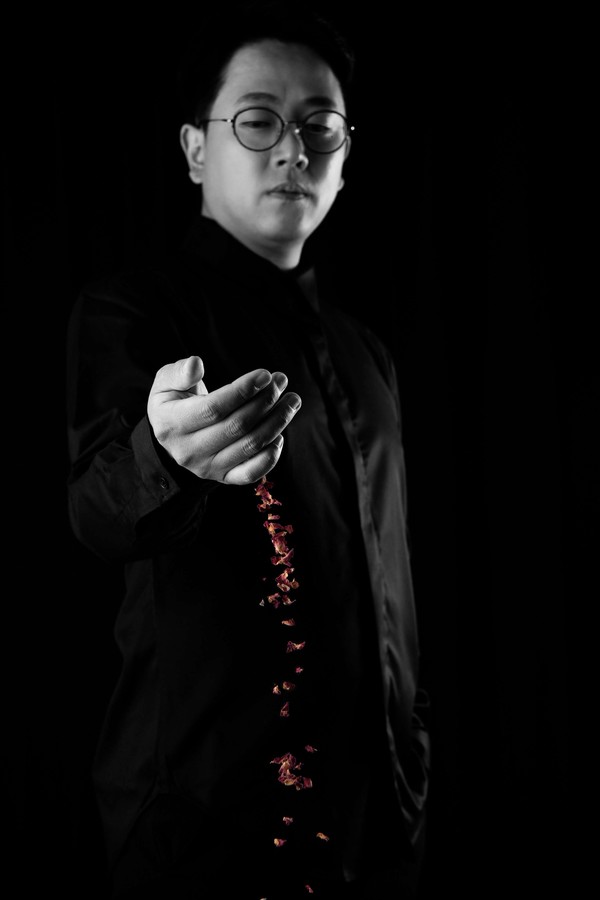
#Starting the Interview
1. Hello, it’s an honor to meet you. Could you please start by introducing yourself briefly to the students at Chung-Ang University and our readers?
Hello to all readers of the Chung-Ang Herald. I am Park Sung-Hwi, a world champion in the field of tea and the leader of the startup company "Signature Asia." As a graduate of Chung-Ang University, I am delighted to have the opportunity for an interview with CAU People.
2. You pursued studies in the Department of Korean Music at the Chung-Ang University College of Arts. I wonder what kind of student you were during your time there.
Back in my undergraduate days, I believed I was a student with a unique inclination for analyzing phenomena in my field with a fresh perspective and enjoying the challenge of tackling complex and novel tasks. I entered university as a musical accompaniment major, and during my graduation performance, I composed chamber music pieces and even conducted them myself. In addition, I felt a need for innovation in traditional Korean instruments and went on to develop a 9-stringed instrument capable of playing harmonies. These endeavors mostly transcended my major, making them not easily approachable or executable, but once I set a goal, I had a fearless nature and would leap into action without hesitation.
3. You took a different path from your major in university and became deeply involved in the world of tea. Could you share the particular motivation behind this journey?
To briefly summarize the story, my first encounter with tea was during high school. The initial experience wasn't enjoyable, but I couldn't just discard it. I started pondering how I could make it tastier, leading me to experiment with various approaches. Over time, I transformed the unpalatable tea into something appealing using my unique methods. Witnessing my friends enjoy it was a different thrill from performing as a musician on stage with my instrument. It wasn't until university that I truly experienced well-made tea. Later on, I realized that my experimental attempts while knowing very little about tea were actually part of the tea-making process, which surprised me greatly.
#Establishing as a Tea Master
4. Becoming an expert in a specific field is challenging. Could you share the journey you underwent to become a tea expert?
Tea is greatly influenced by the terroir[1] , which is why there exist unique methods of tea manufacturing optimized for various countries, regions, and environments. To acquire these methods, it's important to study in the places where the roots of that particular tea lie. In my case, I've learned from renowned masters in countries like India, Nepal, China, Japan, and the UK, focusing on acquiring the essence of their techniques.
5. You are the only one of six holders of the "Grand Tea Sommelier" title in Korea, and you're a champion in the tea field. I wonder about the training process you went through to reach this position.
Korea, like China, has a long history of tea, dating back to Goguryeo as we’ve discovered in some tombs. However, due to religious and ideological conflicts, as well as wars, the lineage of this history was unfortunately disrupted and could not be sustained. Currently, over 95% of tea produced in Korea is green tea, relying almost entirely on imports for other types of tea, resulting in an abnormal market structure. Focusing on adapting the techniques learned from the aforementioned renowned masters to suit the local context, I have spent a considerable amount of time working on the localization of these techniques. Through these efforts, I have attained the title of the sole possessor of the Six Major Tea Categories (Daryu) techniques in Korea. The diverse experiences and achievements accumulated during this process have served as the driving force that propelled me to the position of a world champion in the field of tea.
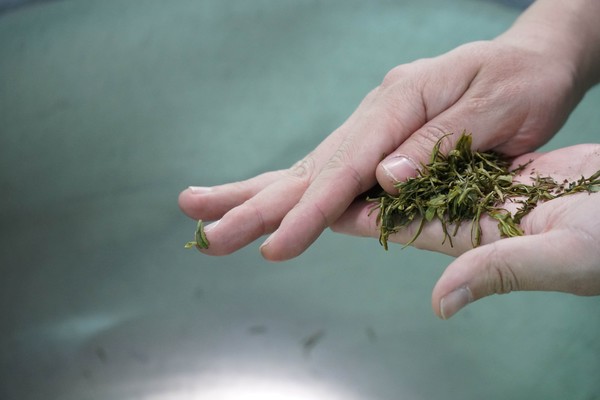
6. As a startup founder and young entrepreneur in the tea industry, What is the endless source of passion for you in the field of tea?
Given the tea industry's extensive history, it obviously possesses considerable depth; however, this historical depth also gives rise to various challenges, a double-sidedness often attributed to tradition. Notably, certain values and institutional approaches that fail to keep up with changing times can become obstacles to progress. While some view tradition as intrinsically valuable, from the standpoint that 'everything about humanity is subject to the dominion of time, and nothing can remain immutable'. it becomes evident that adapting to the changing times is the natural order, much like changing one's clothes to fit the time and occasion. My focus lies in creating teas for the next generation to enjoy in the upcoming era. Moreover, since this is based on imagination and creativity, the process of pioneering a path that no one has ever trodden is truly attractive.
7. Starting a business like Signature Asia as a "young entrepreneur" must have been daunting. If you had any fears, how did you overcome them?
Fear stems from uncertainty. In the realm of business, the most crucial aspect is mitigating risks. By consistently assessing worst-case scenarios and devising solutions, there is little room for such fear. However, there are circumstances we cannot predict or control. Over the past few years, the most significant issue has been the COVID-19 pandemic, exemplifying how unforeseeable exceptions can arise. When faced with such unprecedented events, I too encountered numerous challenges as I navigated through uncharted territory. Nevertheless, I am now equipping myself to handle such situations by incorporating Online-to-Offline (O2O) business models tailored to each sector, ensuring adaptability even in such circumstances.
8. Signature Asia has an unusual headquarters located in Yeongwol, Gangwon-do Province. For a tea company, one might expect it to be situated in places like Boseong or Hadong, where tea cultivation is prominent. Is there a specific reason for having the company located in Yeongwol, Gangwon-do Province?
While it's true that, for most tea companies, proximity to the production areas is advantageous, our company's focus extends beyond simple manufacturing. We concentrate on areas such as the development of new tea varieties. This deliberate choice of locating our company in the inland region of Gangwon Province, where tea cultivation is challenging, is due to these factors.
Presently, the phenomenon of abnormal climates, exemplified by global warming, is causing production setbacks not only in Korea, but also in key tea-producing countries like China, India, and Japan due to cold-related damages. Consequently, as with all agricultural sectors, companies that triumph in the "battle of seeds" are the ones that survive. We dedicated an astonishing 10 years to develop a new variety called SH-1, specialized for cold tolerance. We achieved success by creating the world's first tea variety capable of thriving even in temperatures below -20 degrees Celsius. Ultimately, for accurate testing, a proximity between the testing beds and the company is essential, which led us to establish our headquarters in Yeongwol, Gangwon Province.
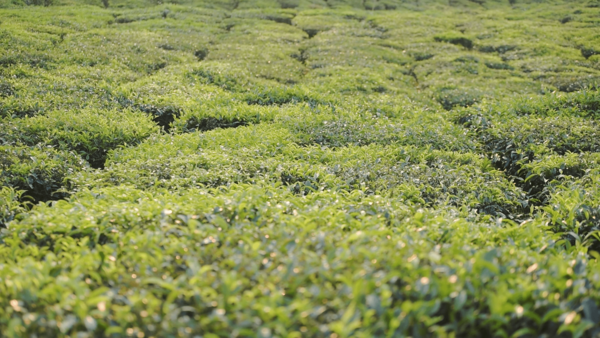
9. I'm curious about your criteria to judge a good quality tea.
The concept of "good tea" varies individually, with each person having their own criteria for what they consider to be excellent. For me, involved in creating consumer goods, I believe that the best tea is one that satisfies each consumer's unique tastes. In the past, creating good tea predominantly revolved around producers showcasing their products and values to persuade consumers. However, in today's era, it's crucial to shift the perspective to a consumer-centric approach and develop personalized products optimized for individual preferences. Consequently, we have developed innovative systems like CWP (Custom Water Process) and implemented them. This allows us to provide customized flavors and aromas tailored to each individual's taste, even when consuming the same type of tea. Currently, this is also one area where we are receiving very positive feedback.
10. CWP (Custom Water Process) sounds unfamiliar, could you please explain what it is?
Interactions between the tea and the minerals contained in water. Consequently, a wide range of outcomes can arise depending on the properties of the water. The Custom Water Process (CWP) is a technique designed to achieve personalized tea flavors by creating water with various mineral balances for tea extraction. When applied, this allows for selective adjustment of taste, aroma, and texture according to the consumer's preferences, even when using the same type of tea. It can even enhance latent aromas that might not be noticeable in typical conditions. This technology is a perfect match for current trends in the Food & Beverage industry.
11. You won an award for the world's first tea capsule product in Belgium's ITI competition. Subsequently, you've been coming up with even more creative ideas. I wonder is there any special efforts to have boundless ideas and creativity.
When it comes to tea capsules, we've created a product based on the insight that consumers perceive the process of extracting tea as cumbersome and complex. Using a steam pressure-based method similar to extracting espresso, our product allows for the easy enjoyment of tea with just a single button press. You could liken it to the concept of Nespresso coffee machines. The differentiating factor here is that the capsules themselves are equipped with pressure-adjustment mechanisms. This empowers each capsule to independently regulate the optimal pressure tailored to the specific ingredients it contains. With this innovative approach, we achieved a groundbreaking accomplishment by winning international competitions, thereby adding a significant chapter to the history of tea. Just like this instance, ideas and creativity can emerge through an innovative idea exploration process, involving understanding customer needs and striving to provide them with new value. All problems and ideas are quite close at hand.
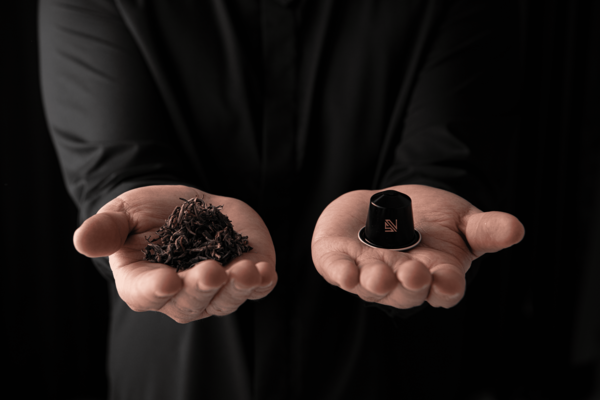
12. I'm curious about the reasoning behind starting the Signature Leaf tea house in Yeongwol, Gangwon Province, and Gwangju, Jeolla Province.
One thing to note about the characteristics of each store is that they are closely located in a tea plantation. Firstly, since the domestic tea market mostly relies on imports, there is an issue of uncertainty regarding the hygiene conditions of tea production. Therefore, if the tea plantation and the stores are closer, the transparency of the production process increases, and it can enhance customer trust in the brand. Secondly, there is a reduction in transportation costs. In the future, due to factors such as global warming, tea production will decrease leading to an increase in tea prices. To stabilize prices, it is necessary to reduce other costs. Lastly, it is for environmental reasons. According to the IEA, the freight transportation sector accounts for a significant portion of overall energy consumption and carbon dioxide (CO2) emissions. In the end, as we are in the business of utilizing tea, a natural resource, it is only natural to consider these aspects if we aim for long-term sustainability.
13. The fact that Signature Leaf serves as both a tea house and a trade company showroom is quite unique. What was the reason behind creating a space with these two functions?
If we delve into more detail, besides the tea house and showroom, there's one more function. It's the utilization of the space as a freight hub. Following the era of the new normal accelerated by the COVID-19 pandemic, online activities have gained momentum, and consumers are expected to continue valuing the convenience of online services. In response, various companies are investing in their own delivery services, such as same-day delivery. We also have our own “Signature Delivery” service, where customers can order tea online and receive same-day delivery within a 30km radius of our stores. Looking ahead, as our offline stores expand in the form of company-owned franchises, these locations will play a crucial role in offering distinctly differentiated services on a nationwide scale.
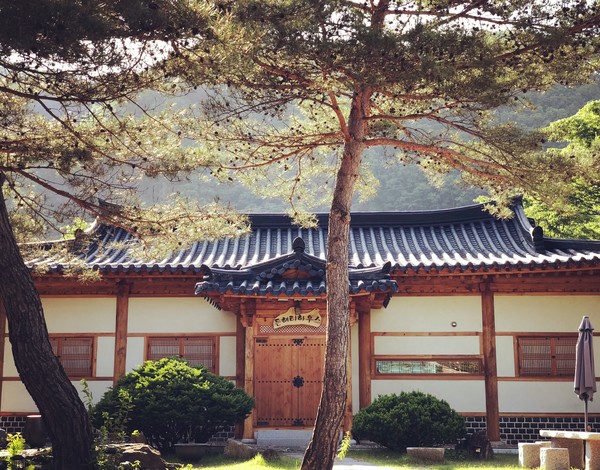
14. I've noticed that the interior of the Signature Leaf tea house differs from traditional tea houses and features a more modern and clean design with the use of projectors. I’m curious to know the inspiration behind this design. Also, can you share some tips on going beyond common beliefs or preconceptions?
We started actively incorporating media art utilizing audio and video in 2019, based on the scientific concept of 'cross-modal perception.' Cross-modal perception explains the process in which various sensory-related information in the brain combines to create a more complete experience or perception. For instance, during the process of drinking tea, research suggests that auditory and visual interferences can actually influence taste and aroma. Therefore, even when enjoying a cup of tea, we aim to provide a more complete experience through interior design and store concepts of this nature. The unique thing about us is that everything is based on scientific evidence.
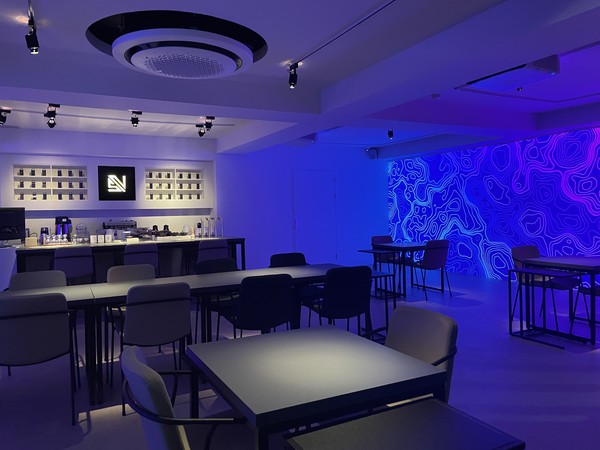
15. In a field like tea which has a strong sense of “tradition”, have you faced opposition or criticism for attempting new approaches? If so, how did you overcome such challenges?
We are a company that is technologically ahead, not only domestically, but also globally. In addition to the previously mentioned SH-1, we have succeeded in developing a new variety, SH-2, which has more than doubled the growth points and can increase production by over two times. We are now moving towards a position of leading the industry's trends and directions as a comprehensive tea-specialized company. In the past, those who received traditional tea education may have been resistant to the various technologies and outcomes we are creating. However, after seeing the undeniable results we are less concerned about the opinions of those around us. Ultimately, what matters is the results and our confidence in shaping the future.
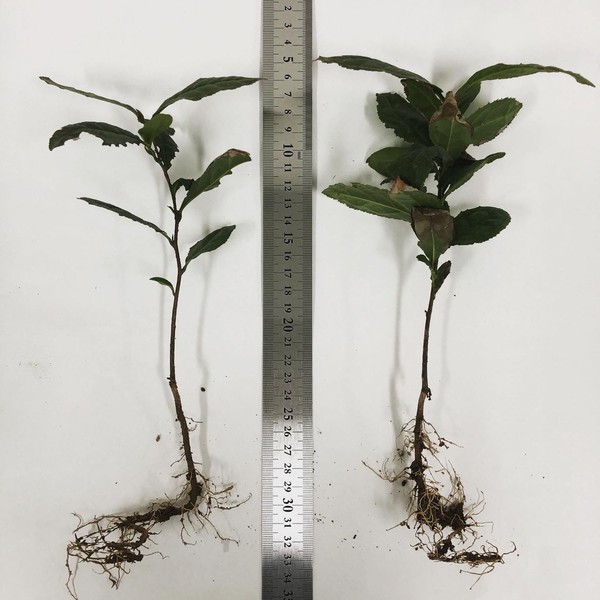
16. What is your vision for the future of South Korea's tea industry and could you share with us what efforts and directions are needed for the tea industry in South Korea to thrive and develop?
The first challenge we need to address in discussing the future of our tea industry is the diversity of tea. As I mentioned earlier, we have an imbalanced production structure that focuses almost entirely on green tea, leading to a complete dependence on imports of other types of tea. Looking back at the past incident of Japan's hydrogen fluoride export control, we experienced the potential consequences for our industry when domestic technology relied on other countries for key elements. When the country holding the key to production starts controlling exports, the industry itself can collapse. While efforts to create a variety of tea types are starting, there is still a significant lack in terms of quality and diversity. The domestic tea industry must recognize this seriousness and respond rapidly. Currently, we produce more than 130 varieties of orthodox single-origin tea, and possess the technological capability to produce the most globally available teas domestically. With our best efforts, we will take a leading role to ensure that Korean tea flourishes in the global market.
#Ending the Interview
17. Do you have anything specific you'd like to do as a person, not just as a tea master, Park Seong-hwi?
I’m satisfied with simply just watching a movie with my cat.
18. What are your aspirations for your future career?
If 100 years from now, someone can enjoy the tea I've created and if I can establish a company that continues to thrive, I don't think there could be anything more to wish for.
19. How has Chung-Ang University influenced you, and how is it remembered in your memories?
Even though I'm currently involved in tea rather than music, regardless of the field, there's a similarity in the way humans approach basic principles and principles of thinking. If I can discover common insights, I can connect it with my various abilities. In that sense, the creative and interdisciplinary education provided by the School of Korean Music at Chung-Ang University has been a significant help to me. If the opportunity arises, I would love to share my skills with my juniors.
20. Finally, as a Chung-Ang University alumnus, could you share a few words of encouragement for Chung-Ang University students who are working towards their dreams?
Even in the field of tea where it might seem unrelated, we have reached a point where continuous innovation of AI is necessary. It's a confusing era in that regard. In times like these, living by past standards is no longer feasible. Therefore, I understand how challenging it can be for all of you. It might be tough, but I hope you can possess the insight to predict and envision the future and pioneer your own lives wonderfully. I also hope you become the protagonists of this change.
Through this interview, we were able to witness the passion for tea and the boundless creativity of Park Sung-hwi. As a tea master and the founder of "Signature Asia.", he moves beyond traditional methods by approaching everything with a diverse perspective, constantly striving to create something new and adapt to the ever-evolving environment. He will serve as valuable guidance for many students embarking on new challenges. CAH looks forward to and supports the future endeavors of Park Sung-hwi, a true "hidden champion" in the South Korean tea industry.
[1] the combination of factors, including soil, climate, and environment, that gives a tea or wine its distinctive character

